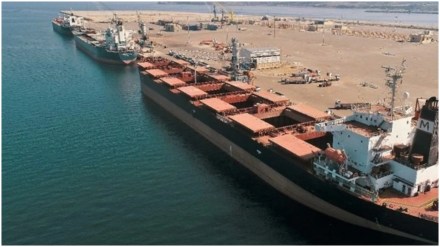Chabahar Port in Iran will soon face US sanctions after the Donald Trump government revoked a special waiver granted to India in 2018. The decision was announced as part of a “maximum pressure policy to isolate” Tehran and comes amid a continued strain in India-US ties. The Ministry of External Affairs later said it was “examining the implications” of the move.
India had signed a 10-year agreement with Iran in May 2024 for operational control over the Shahid Beheshti terminal. Chabahar Port is situated in southeastern Iran — near the China-controlled Gwadar Port — and stands out due to its strategic and logistical advantages. The deal had given India a key alternative route that bypasses Pakistan and helps counterbalance China’s regional influence.
“We have seen the US press statement regarding the revocation of a sanctions waiver for Chahbahar Port. We are presently examining its implications for India,” MEA spokesperson Randhir Jaiswal said without elaboration on Friday.
What is the significance of Chabahar Port?
Chabahar Port in Iran provides India with a direct and alternative maritime route to Afghanistan and Central Asia — completely bypassing Pakistan. It also serves as a geopolitical counter to Chinese influence in the region and strengthens the presence of New Delhi in the Indian Ocean. Its location close to the China-controlled Gwadar Port in Pakistan also makes access to Chabahar Port essential to India.
What happens after September 29?
According to an official statement, the operators of the Chabahar Port in Iran will face US sanctions starting September 29. This would also expose India and any domestic entities involved in operating or developing the port to US sanctions under the Iran Freedom and Counter-Proliferation Act. The current waiver has protected a $370 million investment made by India in the region and furthered its strategic plans for regional connectivity through Chabahar.
The policy change will likely mean restrictions on financial transactions, asset freezes, or other punitive measures for Indian firms, vessels, or individuals linked to the port and its activities. It is also likely to complicate diplomatic and trade relations as India tries to balance ties with both Iran and the US.
